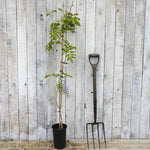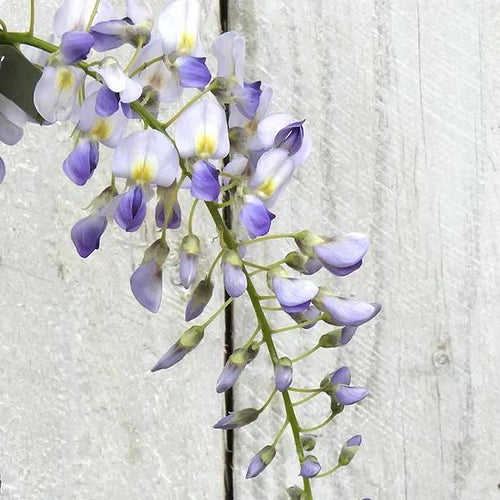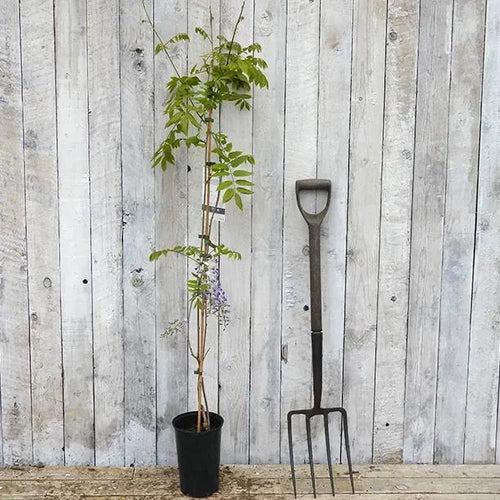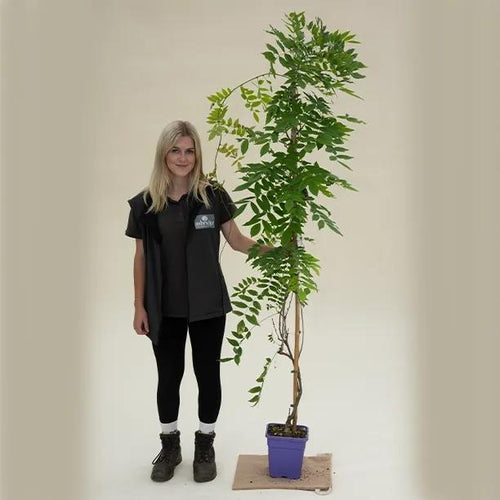Domino / Issai Wisteria Plants
'Domino / Issai Wisteria' long cascading pale lilac-blue and darker violet flowers with a yellow spot in May-June, delicate spicy perfume. To 6m x 3m
Browse our variety of wisteria or our full range of climbing plants.
Features
- Large deciduous climber
- Long cascading flowers of pale lilac and deeper violet
- Delicate spicy perfume
- Fully hardy
- Needs support
- Will grow to an eventual height and spread of 6-9m x 5m
- Sun or dappled shade
- Clockwise twining
- RHS Award of Garden Merit
Growing Domino Wisteria
It prefers sun but will thrive in dappled shade, and is best planted where the fragrance can be appreciated.
It needs the solid support of a pergola, pillar or a wall with vines eyes and wires set at 12" distances. It can also be grown more formally as a half-standard in a tub with a frame. It can look spectacular grown into mature trees when it'll need very little maintenance save keeping its vigour in check.
History & Trivia
There is a 150-year-old specimen in Ashikaga Flower Park near Tokyo that rests on 600 metres of trellis. It has also been sold as Prematura, in reference to its precocious flowering: the Japanese name Issai means 'year old' or 'age one'.








 Secure, One-Tap Checkout
Secure, One-Tap Checkout
 Hand Picked, Delivered to Your Door!
Hand Picked, Delivered to Your Door! 1 Year Bareroot Guarantee
1 Year Bareroot Guarantee







